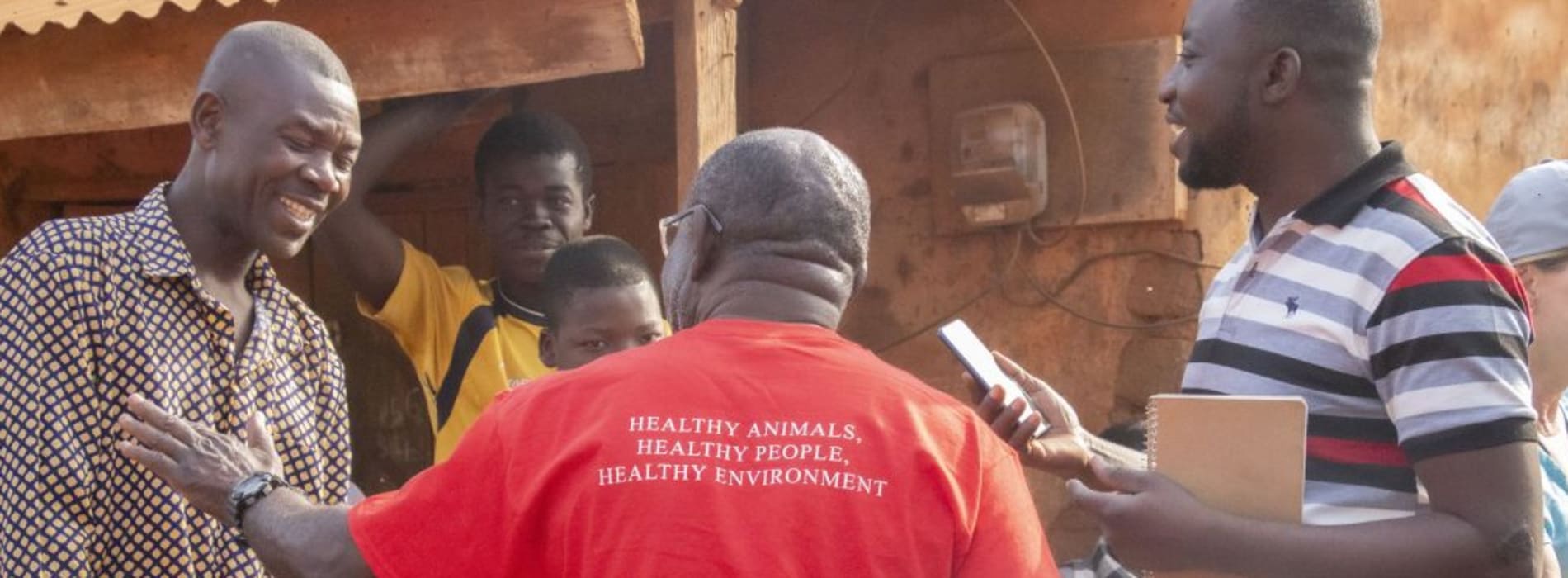Dr. Joseph Ansong-Danquah explains the importance of on-the-ground volunteer work that supports farmers engaged in animal production in Ghana.
When the opportunity was presented to me to join VWB/VSF as a volunteer to undertake assignments in Ghana, West Africa, I was thrilled and elated. The volunteer assignment offered me the avenue to share my long-standing experience in animal production and veterinary medicine expertise to train the rural smallholder farmers in northern Ghana rural communities on animal production management. After developing two training manuals on small ruminants and backyard poultry, I used these training manuals to deliver face-to-face training to rural smallholder farmers including Ministry of Food and Agriculture ( MoFA ) staff in various communities.
Traditionally, these animals (sheep, goats, and poultry) are raised under free-range management with little or no care at all. Also, the rural smallholder farmers lack the skills and the knowledge to engage in animal production. Hence, the farmers experienced high mortality and low productivity due to disease outbreaks and poor husbandry practices.
My voluntary assignments in Ghana for the past three years have dramatically improved animal production in terms of reducing mortality and increasing the size of the herd/flock. The selling of these animals has resulted in improving the family financial outcome and livelihood, especially for women who do not have access to the land for crop production.
In the presence of the current global Covid-19 pandemic, the situation in Ghana is critical. Though the lockdown and restrictions have been loosened to some extent, it is essential that the volunteers stay on the ground to support the farmers engaged in animal production by providing training and conducting extensive vaccinations and parasitic treatments to control diseases. At this stage, the work of the volunteers is even more important since the farmers have lost their sources of income and animal health training resources due to the lockdown.
- Dr. Joseph Ansong-Danquah





